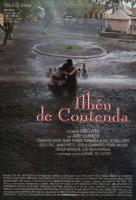Falcão Nhaga
Articles tagged with Falcão Nhaga
Tag Archive
- (Carlos) Yuri Ceuninck
- academic knowledge
- acid house
- África Ocidental
- african
- african-descent
- afro-brazilian
- Alemanha
- alimentation
- angolan identity
- arabes
- Bandjoun Station
- Barthélémy Toguo
- beirut
- Benedict Anderson
- biografia
- Boaventura Sousa Santos
- Bonga
- border
- British cinema
- c
- caboverdiano
- capital
- Carlos Correia
- Cham
- Chomsky
- Circulation; Symbolic Ethnicity; Emotional Communities; Invention of Tradition; Memory of Place; Transculturalism
- city
- Claire Tancons
- colonial unconscious
- contemporary dance
- cuban communist party
- Cuca
- David Livingstone
- Decolonizing decolonization
- documenta fifteen
- Egypt
- Empire
- Euridice Kala
- Falcão Nhaga
- Flora
- fragment
- freedom
- funeral
- Germano de Almeida
- germany
- Haiti
- Hanami
- hegemony
- ideologia
- instalation
- intellectual extractivism
- international relations
- Ireland
- Irineu Destourelles
- Jacques Rancière
- jewish culture
- justiça social
- Lagos
- letters from angola
- língua caboverdiana
- Lisbon
- Lisbon Architecture Triennale
- Mão Morta
- Matthias De Groof
- Mattia Denisse
- Memories of the Poisoned River
- Miguel Gomes
- Monuments in Reverse
- morality police
- multiculturalism
- Neo-Colonization
- PAIGC
- Paisagens Efémeras
- patera
- Paul Theroux
- poesia caboverdiana
- political agendas
- progressive academia
- projeto
- Raoul Peck
- Remittances
- resentment
- Rita GT
- Routledge
- safari
- series
- Sines
- Slavery
- sondagens
- suburb
- theo gould
- Tia
- Toy Boy
- Visuality
- Vitor belanciano
- Viveiros de Castro
- work
- World Philosophies
- xxxx
 It’s about contesting narratives: not only narratives about Africa, Africans, Capeverdeans, and about our diverse perspectives, but also narratives about what cinema is, and what it can be, who gets to watch and be watched, who gets to speak and be heard. It is slow but necessary work. It is the work of re-inscribing our collective imagination with images that belong to us and that, in turn, transform us, and then the world.
It’s about contesting narratives: not only narratives about Africa, Africans, Capeverdeans, and about our diverse perspectives, but also narratives about what cinema is, and what it can be, who gets to watch and be watched, who gets to speak and be heard. It is slow but necessary work. It is the work of re-inscribing our collective imagination with images that belong to us and that, in turn, transform us, and then the world. 